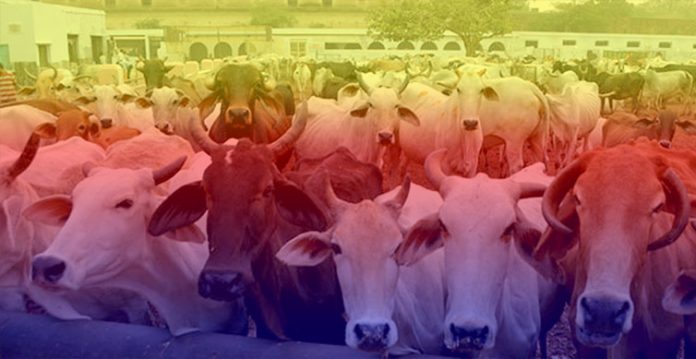The Assam Cattle Preservation Bill, 2021 was introduced by the Assam Chief Minister Himanta Biswa Sarma to protect the cattle in the state on the first day of the Budget Session of the State Assembly.
Bill Aims To Protect Cattle Unless A Registered Veterinary Certifies For Slaughter
The bill aims to protect the cattle by regulating their slaughter, consumption and preventing any other illegal transportation. It prevents slaughter of the cows unless a registered veterinary deems it fit for slaughter. Bill suggests that only the cows that are above 14 years of age or those who are permanently incapacitated because of work, accident, or deformity shall be fit for slaughter.
Furthermore, the certified cattle will be slaughtered only at the licensed slaughterhouses. However, the state may exempt places of worship or certain occasions from the slaughter of cattle, other than cow or calf for religious purposes.
ALSO READ: ‘Cattle mafia’ became active ahead of Eid while Muslim families feel helpless
The proposes to ban the transportation of cattle from outside the state and to restrict movement within the state too. An authority would be set up to issue permits for the transportation of cattle. However, no permission would be required for cattle grazing or agricultural/animal husbandry purposes.
At the same time, the bill proposes to restrict the sale of beef and beef products anywhere except the permitted places. It would also not be sold in areas where there is a predominant population of Hindus, Sikhs, Jains, and other non-beef-eating communities. Along with any other religious institutions like temples, satra, etc within a 5 km radius.
Opposing Parties Fear Damage To Livelihood For Cattle Traders Meanwhile,
Congress and All India United Democratic Front (AIUDF) have opposed the Bill. They say that it could lead to communal tensions and could affect the livelihood of the people who are involved in the cattle trade, legally. Furthermore, interpretation of the bill could lead to attacks on communities that intake beef.







